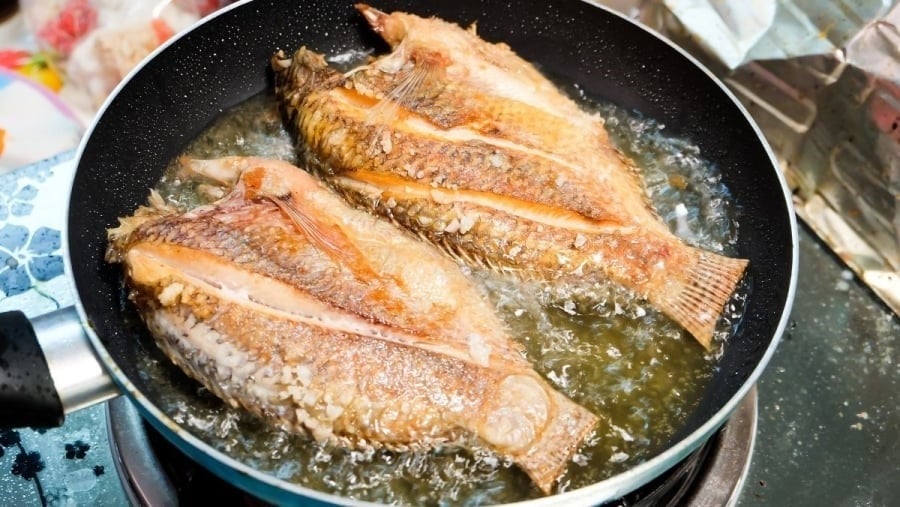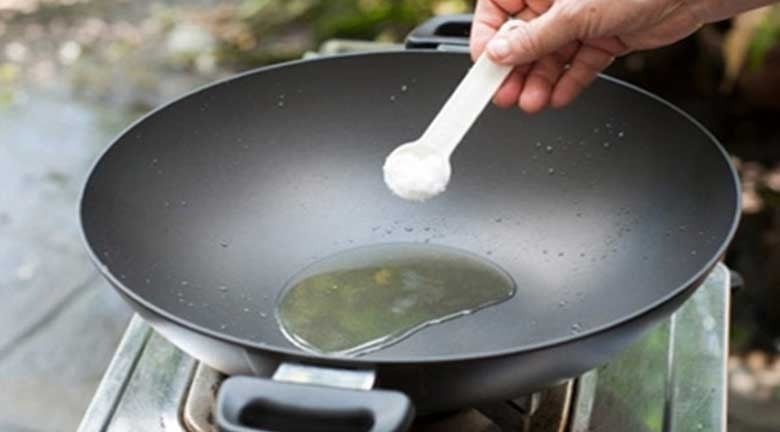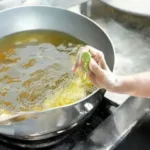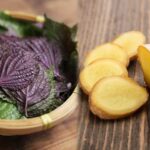Properly Dry the Fish
For delicious fried fish, proper fish preparation is key. Start by scaling, gutting, and removing the gills and black membrane to eliminate any fishy odor.
Then, rinse the fish thoroughly with salted water, rice water, or ginger wine to neutralize any slime and odor. Importantly, pat the fish dry with a clean cloth before frying to prevent oil splatter.
Add Flour to Hot Oil
A clever trick to prevent the fish from sticking to the pan and reduce oil splatter is to sprinkle a spoonful of flour into the hot oil. Stir to ensure the flour coats the oil evenly. When you add the fish, it won’t stick, and there will be less oil splatter.

Coat the Fish with Flour
For a crispy, golden coating, lightly dust the fish with a thin layer of flour before frying. Take care to use just enough flour to avoid altering the dish’s flavor. You can use wheat flour, cornstarch, or potato starch according to your preference.
Add Salt to the Cooking Oil
To enhance the flavor of the fish, try adding salt to the cooking oil. First, pour a sufficient amount of oil into the pan and heat it up. Then, add a pinch of salt and stir to dissolve. Once the salt has dissolved, carefully place the fish in the pan, resulting in a more flavorful dish.

Use Ginger to Prevent Sticking
To prevent the fish from sticking to the pan or the bottom of the pan, try using ginger as a non-stick coating. Cut a thick slice of ginger and rub it all over the inside of the pan. Then, pour oil into the pan and wait for it to heat up before adding the fish. This method will ensure the fish doesn’t stick and can be easily flipped during frying.
Don’t Flip the Fish Too Soon
For a crispy, golden finish, fry the fish over medium heat. If the heat is too high, the outside will burn while the inside remains undercooked. Only flip the fish once the underside is golden and crisp. Flipping too soon, while the surface is still soft, may cause the fish to break and affect its appearance.
As the fish nears doneness, you can increase the heat to create a crispy, golden coating. Once the fish is cooked to your liking, remove it from the oil and drain it on paper towels for a few minutes before serving hot.
The Ultimate Guide to Splatter-Free Frying: A Secret Ingredient to Keep Oil in the Pan
Introducing a revolutionary way to reduce oil splatter while frying: a simple yet effective method that will transform your cooking experience. Unveil the secrets to achieving crisp and delicious fried food without the mess. It’s time to say goodbye to greasy countertops and hello to a cleaner, safer kitchen.
The Ultimate Detox: Lemon, Ginger, and Mint Drink—Benefits and Facts You Need to Know
“Believing in the ‘magical’ powers of a concoction of lemon, ginger, sugarcane, lemongrass, and sea salt has become a widespread phenomenon. This article aims to delve into the actual benefits of this mixture and shed light on common misconceptions. We will explore the science behind these ingredients and provide an insightful analysis to help you understand the truth behind the trends.”



































